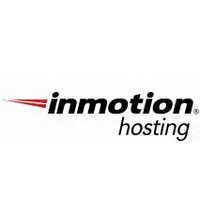Shared hosting vs dedicated hosting: Which plan should I choose?
A lot will depend on your technical knowledge and budget

Sign up for breaking news, reviews, opinion, top tech deals, and more.
You are now subscribed
Your newsletter sign-up was successful
Choosing the correct hosting package is crucial for your website to perform properly. When reviewing website hosting packages, everything can seem a bit overwhelming.
There are different packages with many features and a plethora of pricing options. How do you know which is best for you and your website? Today, let’s look at the differences between shared hosting and dedicated hosting.
Inmotion hosting offers shared hosting, a WordPress and BoldGrid-based graphical Website Creator, managed WordPress, managed and cloud VPS, reseller plans, managed and bare metal dedicated servers, high-end enterprise products, and the list goes on. Harness the power of the command line with full root access on the $99.99/month Essential Quad-core Xeon server.
Shared hosting vs dedicated hosting: Overview
Shared hosting is one of the most common hosting packages. In shared hosting, thousands of websites are stored and hosted on a single server.
Shared hosting is similar to renting and living in an apartment. The apartment complex amenities are shared with everyone. When signing an apartment contract, you agree to share the courtyard, playground, parking lot, and swimming pool. This is the same for shared hosting. All users share the available resources with each ‘neighbor.’ Each ‘neighbor’ has an allotted amount of resources that they can use. In shared hosting, these amenities would be CPU usage, memory, and disk space.
Dedicated hosting is different to shared hosting in that none of the resources are shared. All resources and server disk space belong to you. Dedicated hosting is similar to owning a house. You don’t have to worry about sharing your driveway, backyard or private swimming pool.
Similarly, with dedicated hosting, nothing is shared and all resources are dedicated to your website. This grants you the power and flexibility to configure your server, install custom software, and manage the overall resources for your website.
Dedicated hosting requires that you complete all maintenance and updates for your server.
Sign up to the TechRadar Pro newsletter to get all the top news, opinion, features and guidance your business needs to succeed!
Shared hosting vs dedicated hosting: What's the difference?
The fundamental difference between shared and dedicated hosting lies in how server resources are allocated. In shared hosting, multiple websites coexist on a single server, sharing all available resources including processing power, memory, and storage — similar to living in an apartment building with shared facilities. With dedicated hosting, a website gets an entire server exclusively to itself, with full control over all resources — analogous to owning a private house.
1. Resource allocation and performance
When using shared hosting, your website must compete with numerous other sites for server resources, which can lead to the "bad neighbor effect" where one site's heavy resource usage impacts others on the same server.
In contrast, dedicated hosting provides exclusive access to all server resources, ensuring consistent performance and faster loading times regardless of other websites' activities. This makes it particularly valuable for high-traffic websites or those requiring significant processing power.
2. Security and risk management
Security considerations differ significantly between these hosting types. Shared hosting environments face higher security risks due to the multiple websites operating on the same server - if one website gets compromised, it could potentially affect others sharing the same space.
Dedicated hosting provides superior security since you have complete control over the server environment and don't share the space with potentially vulnerable websites. Its isolation makes dedicated hosting particularly suitable for businesses handling sensitive data or requiring specific security protocols.
3. Cost structure and management
The cost difference between these hosting types is substantial. Shared hosting typically ranges from $1 to $20 per month, making it an economical choice for small businesses and startups. Dedicated hosting, however, can cost anywhere from $60 to $350 monthly, reflecting the exclusive resource access and enhanced capabilities.
Beyond the basic costs, dedicated hosting often requires additional technical expertise or the expense of hiring server administrators, while shared hosting includes managed services within its base price.
4. Customization and control
The level of control varies dramatically between these hosting types. Shared hosting provides limited customization options since changes could affect other websites on the server. Users typically interact through a simplified control panel with pre-installed applications.
Dedicated hosting offers full root access and complete control over server configuration, allowing for custom software installation, specific security protocols, and detailed performance optimization. This makes dedicated hosting ideal for businesses with unique technical requirements or specialized software needs.
5. Scalability and growth
Scalability options differ significantly between the two hosting types. Shared hosting has inherent limitations on resource expansion due to the shared environment, potentially constraining website growth.
Dedicated hosting offers superior scalability, allowing businesses to adjust resources like CPU, RAM, and storage as needed without affecting or being affected by other websites. This makes dedicated hosting more suitable for businesses anticipating significant growth or requiring flexible resource allocation.
What are the advantages of shared hosting?
Being the most common type of hosting, shared hosting is also the most affordable. Unlimited disk space is another advantage. This means that when your website starts to grow, you won’t have to worry about your account becoming too full.
If you get minimal traffic on your website, or your website does not require a large amount of resources, shared hosting is a perfect option. As resources are shared, smaller websites which don’t use as many resources can run efficiently.
Shared hosting generally comes with an easy to use dashboard where you can configure your account settings, and also install content management systems and configure domain settings.
You don’t need to worry about updating hardware or running maintenance updates. All maintenance and updates are completed by your hosting provider, giving you more time to focus on content.
Lastly, you can get up and running swiftly with shared hosting, allowing visitors to view your website within hours of getting started.
What are the advantages of dedicated hosting?
Dedicated hosting has its own advantages, including the fact that it provides superfast load times even while facing heavy traffic. As its resources are not shared, this gives your website 100% of the processing power. This allows for optimal performance, helping with Google rankings and SEO.
Dedicated hosting gives you the key to the front door for the full server. This is called root access. With root access, you have full control of your server. With this control and flexibility, you can ensure that your website and server are fully secure and all processes are running. You can also manage your server using root access via the command line.
With room for growth and scalability, dedicated hosting has increased reliability. This brings peace-of-mind knowing that your website resides on the best hosting package possible.
Lastly, most dedicated servers are DDoS protected ensuring that not only does the server stay secure, but most importantly, your website stays live.

What are the disadvantages of shared hosting?
The limitations of sharing resources is an obvious disadvantage of shared hosting. With the ability to host thousands of websites on one server, shared hosting servers restrict the amount of resources that you can use. This will slow down the overall speed of your website. If you suddenly receive a spike in traffic, your website may experience slowness or downtime due to resource restrictions.
Another disadvantage of shared hosting is security. Due to thousands of websites being hosted on a single server it’s, generally speaking, not possible for the hosting company to run security updates on each website. That said, some hosting companies do ensure server security by having requirements which force certain updates to be run.
Unfortunately, you cannot apply server customization on shared hosting. Server customization can affect other websites on the server in different ways. Due to this, when on shared hosting you are required to use the standard server configuration.
What are the disadvantages of dedicated hosting?
Since dedicated hosting has advanced features, the price is higher compared to shared hosting. It is one of the most expensive hosting methods in the market. All additional features do come at a cost, but it is certainly worth it for those who need complete control and customization over their hosting.
You can do lots of powerful things with dedicated hosting, install a new operating system, fine-tune your firewall or whatever you like, but, to do that requires a lot of knowledge and expertise.
If that’s you, great, go for it. But if you’re not technical, don’t be put off. Get a managed hosting account and the provider will handle all the most technical stuff for you, and it can be almost as easy as managing a shared hosting package (you can spend your entire time in WordPress managing your site).

What it comes down to: Flexibility vs convenience
Both types of hosting have their pros and cons and it really boils down to your preference and priorities that’ll help choose the right plan for you.
While they aren’t exactly static, shared hosting lacks the flexibility that you get with dedicated hosting -- you can personalize everything from the operating system of the server to tweaking the amount of resources at your disposal.
Scalability is another factor that tips the scales in the favor of dedicated hosting. Again, while you can modify the amount of certain resources in shared hosting, there literally is no end to the amount of customization in a dedicated host.
The third major aspect that works in the favor of dedicated hosting is security. Again, this doesn’t mean that you don’t get any security advantages with shared hosting, but they aren’t as comprehensive and well-rounded as in the case of dedicated hosting.
However, the one area where shared hosting clearly outscores dedicated hosting is cost. There is a considerable difference in price between the two types of hosting plans, which renders dedicated hosting outside the scope of several types of small-scale deployments. It’s no surprise that virtually all beginners decide to trade the advantages of dedicated hosting for the convenience of shared hosting.
Conclusion
Choosing a hosting package for your website is an important decision. The correct package will allow your website to perform with the optimal speed and performance.
Shared hosting is the least expensive option and is known as being the easiest to get started with. It is generally the perfect hosting package for smaller websites.
Dedicated hosting brings a lot of power and flexibility to the table, but also comes with responsibility. It is not the right hosting package for every website, but it is worth it for those who need complete control.
Your website’s requirements, your technical understanding and your budget are the important factors in deciding between shared hosting and dedicated hosting.
- We have created a list of the best dedicated server hosting providers on the market

Désiré has been musing and writing about technology during a career spanning four decades. He dabbled in website builders and web hosting when DHTML and frames were in vogue and started narrating about the impact of technology on society just before the start of the Y2K hysteria at the turn of the last millennium.
- Mike WilliamsLead security reviewer
- Ritoban MukherjeeContributing Writer - Software
